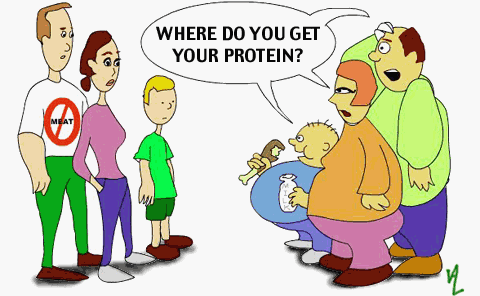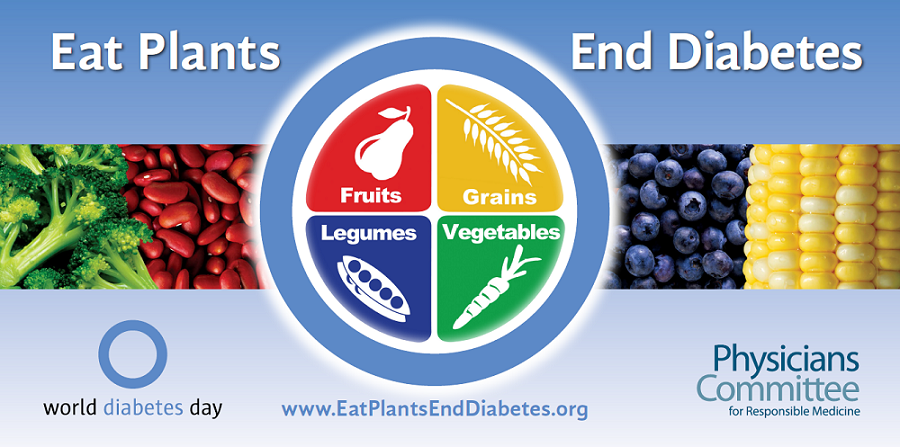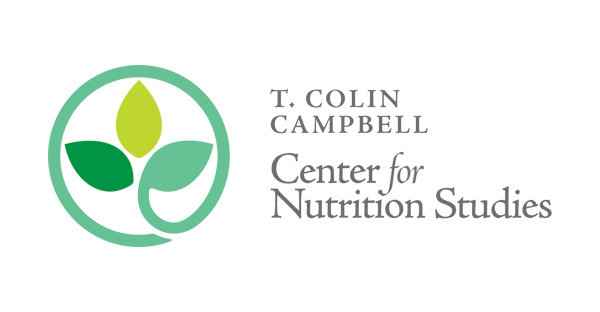vegan for your health
““The most ethical diet just so happens to be the most environmentally sound diet and just so happens to be the healthiest.””
GET HEALTHY
The Academy of Nutrition and Dietetics, which is the world’s largest organization of food and nutrition professionals, states that “appropriately planned vegetarian, including vegan, diets are healthful, nutritionally adequate and may provide health benefits for the prevention and treatment of certain diseases. These diets are appropriate for all stages of the life cycle, including pregnancy, lactation, infancy, childhood, adolescence, older adulthood and for athletes. Plant-based diets are more environmentally sustainable than diets rich in animal products because they use fewer natural resources and are associated with much less environmental damage. Vegetarians and vegans are at reduced risk of certain health conditions, including ischemic heart disease, type 2 diabetes, hypertension, certain types of cancer, and obesity.”
Meat & dairy products contain very high amounts of saturated fat and dietary cholesterol. Plant foods contain zero cholesterol. The human body manufactures all the cholesterol it need so we can certainly live without eating any cholesterol. Cholesterol is attached to protein packages called lipoproteins, which are assembled in the liver and circulate in our bloodstream. High cholesterol and triglyceride levels have been linked risk factors for heart disease, insulin resistance or diabetes, abdominal obesity and high blood pressure. Dietary cholesterol only comes from animal products such as meats, fish eggs and dairy products. The amount of cholesterol you consume affects the amount your body produces, which is also affected by genetic factors but saturated fats, found chiefly in animal products, raise LDL more than dietary cholesterol does.
The World Health Organization classified that processed red and processed meats as a class one carcinogen and causes colorectal cancer based on sufficient evidence from epidemiological studies. There is also evidence of linking this meat with pancreatic cancer and prostate cancer.
Plant based diets lower your risk for heart disease, type two diabetes, obesity and cancer which are all mostly created by unhealthy diet and lifestyle choices. Dr. Caldwell Esselstyn has been able to reverse even very bad cases of cardiovascular disease by feeding his patients a low-fat vegan diet saving countless lives.
In the most comprehensive study to be conducted into diet and disease, The China Study showed plant-based diets to be associated with decreased risks of developing cardiovascular disease, cancer, diabetes and many other diseases. Since the publication of The China Study in 2006, many other studies have shown vegan diets to prevent and treat many of the most common lifestyle related disease as well as being associated with a lower all-cause mortality (ie. higher life expectancy).
Flesh foods are loaded with dangerous poisons and contaminants such as bacteria, hormones, herbicides and pesticides, and antibiotics which accumulate in your body and over time creates disease. An extremely high percentage of all the flesh from the chickens, turkeys, cows, fish, and pigs butchered every year in the U.S. is contaminated with E. coli, campylobacter, listeria, or other dangerous bacteria that live in the intestinal tracts, flesh, and feces of animals.
“According to a 2010 report in Academic Medicine, on average, U.S. medical schools offer less than 19.6 hours of nutrition education across four years of medical school. We desperately need to change our medical education structure. ”
OBESITY
More than two-thirds (69%) of U.S. adults are overweight or obese with a body mass index (BMI) > 25 kg. Overweight and obesity are associated with a number of chronic diseases, including type 2 diabetes, metabolic syndrome, hypertension and cardiovascular disease (CVD) is a risk factor for many illnesses, such as cardiovascular disease, diabetes and stroke. Obese and overweight people live shorter lives and live with more chronic diseases, according to a study published in JAMA Cardiology. Researchers examined data for 190,672 participants from The Cardiovascular Disease Lifetime Risk Pooling Project and tracked BMI, cardiovascular disease incidence rates, and mortality. Those with BMIs higher than 24.9 increased their risk for heart disease, developed heart disease earlier in life, and were more likely to die from a cardiovascular event when compared to those with lower BMIs. Researchers observed a higher average number of years spent living with cardiovascular disease in overweight and obese individuals and note that overweight individuals appear to live longer due to earlier onset of the disease.
CARDIOVASCULAR DISEASE
“There are two types of cardiologists: vegans and those who haven't read the data," says Dr. Kim Williams who is the president of the American College of Cardiology. Heart disease contributes to a huge burden of disease in the Western world, but much of it can quite simply be prevented. While obesity is a risk factor for cardiovascular disease (CVD), even without this link, consuming animal products has been shown to be an independent risk factor for CVD. More pressingly, further studies have shown not only are animal products a risk factor for CVD, especially heart attacks, but they can potentiate the disease to an extent that the disease state can essentially be reversed if they are eliminated and a plant-based diet is adopted. Even more astoundingly, one study allowed their participants to eat as much as they wanted as long as it was a fully low-fat, plant-based diet, and 82% had regression of their heart disease. In a time where coronary artery bypass surgery is the alternative, imagine the economical benefits of simply following a plant-based diet and achieving even better results, not to mention the quality of life benefits to the patient of avoiding such a complex surgery.
In the US there are plant-based clinics that focus on using plant-based regimes to treat and cure CVD. One notable name who had success with this was former President Bill Clinton, who has stated a vegan diet saved his life.
diabetes
The link between consuming high animal fat diets and developing type II diabetes has been well established, with many observational studies deducing that a plant-based diet is protective against type II diabetes. Large cohort studies demonstrate that the prevalence and incidence of type II diabetes are significantly lower among those following plant based eating patterns compared with omnivores and even semi-vegetarians. Those following plant-based diets tend to have lower body mass indices, which protects. A plant based diet is thought to increase insulin sensitivity in an already established disease state, and in practice this translates to reducing patients’ insulin requirements by dramatic amounts – with patients often ceasing to need insulin and other oral medications altogether. For a disease otherwise considered to be incurable, these are phenomenal results.
CANCER
The World Health Organization has classified that processed red and processed meats as a class one carcinogen and causes colorectal cancer based on sufficient evidence from epidemiological studies. Specifically colorectal cancer has been associated with meat consumption, prostate cancer with dairy and fish consumption, breast cancer with meat and dairy consumption and ovarian cancer with dairy and egg consumption. On February 13, 2015, the American Cancer Society published their recommendations that cancer survivors should follow “prudent diets,” plant-based diets that are high in fruits, vegetables and unrefined grains while at the same time being low in red and processed meats, refined grains, and sugars. Its report states, “These diets are contrasted to ‘Western’ diets,’ which have the opposite pattern and are heavy in meats, sweets, other processed foods, and dietary fat.” They also recommend weight loss and exercise in order to prolong survival for people with cancer.
“Every bite of food you eat will either fight disease or feed it.”
BONE HEALTH
One of the biggest myths we are taught as children is that we need milk to develop strong bones. In truth, while calcium is important in bone formation, there have been many studies that indicate perhaps dairy sources of calcium are not as good for bone health as previously believed. In one of the largest observational studies to be conducted, the Harvard Nurses Study, those who consumed the most dairy also had the most number of bone fractures. This is further supported by studies which show that countries that have the highest rates of dairy consumption have the highest rates of osteoporosis. There are many plant-based sources of calcium that do not have the negative health effects of dairy (such as high levels of saturated fats).
AUTOIMMUNE DISEASE
There are many autoimmune diseases in which eating animal products has been associated, or plant-based products have been shown to protect against. These include hypothyroidism, hyperthyroidism, rheumatoid arthritis and multiple sclerosis.
ARTHRITIS
As well as plant based diets being beneficial in the autoimmune rheumatoid arthritis, they have also shown to reduce symptoms in the degenerative osteoarthritis.
ACNE
Nutrition plays a huge role in the well-being of your skin. Studies have shown that a diet rich in saturated fat can increase sebum production on the surface of your skin, clogging your pores and thus giving you acne. Furthermore, refined oils and animal fats have been linked to poor circulation which causes the skin to be more susceptible to acne. A lack of plant-derived antioxidants can also adversely affect the well-being of your skin.
KIDNEY HEALTH
Chronic Kidney Disease (CKD) is a progressive disease that is characterized by a gradual loss of kidney function over time. NIH reports that approximately 26 million Americans have chronic kidney disease and that 1 in 3 are at risk for developing it. A comprehensive low fat, plant based can be beneficial in both preserving and improving the function of your kidneys.
BRAIN HEALTH
Plant based diets have been shown to help with memory, and as such prevent and reverse dementia, including Alzheimer’s disease. It has also been shown to reduce the risk and help with the motor symptoms of Parkinson’s disease. The majority of research points to the fact that a plant based diet dramatically reduces inflammation, which can lead to many types of chronic diseases. The antioxidants found in fresh fruits and vegetables helps to repair damage to cells and can help to balance neurotransmitters for optimal brain function. Additionally, there are micronutrients, called phytochemicals that are only found in certain fruits and vegetables and help your brain to function optimally. Cutting out these foods and replacing them with meat, dairy, or processed foods means that your brain is not getting the right fuel.
DIGESTIVE HEALTH
A plant based diet can improve health and prevent disease by feeding the good bacteria in your digestive tract. Trillions of bacteria live in your digestive tract and play an important role in health. Of the thousands of species of gut microbes that live in your gut, however, some are healthy for your body—while others are not. A healthful plant based diet improves the health and diversity of your gut microbes, preventing and treating conditions like obesity, diabetes, heart disease, and inflammation associated with autoimmune diseases.
A diet rich in fruits, vegetables, and other high-fiber, plant-based foods improves gut bacteria diversity within two weeks, according to research published in Nutrients. Researchers assessed gut bacteria composition in 248 participants over a two week dietary intervention that increased fiber intake. Those who consumed more fruits, vegetables, and grains improved gut bacterial diversity when compared to participants who did not change their diet. High fiber diets increase bacteria associated with anti-inflammatory compounds linked to improved glucose tolerance and metabolism.
ADDITIONAL HEALTH LINKS AND REFERENCES
more REASONS TO GO VEGAN
Click on an image below
references
Campbell TC, Campbell TM. The China Study. USA: BenBella Books; 2006. 439 p.
Le LT, Sabate J. Beyond meatless, the health effects of vegan diets: findings from the Adventist cohorts. Nutrients. 2014;6(6):2131-47.
Bamia C, Trichopoulos D, Ferrari P, Overvad K, Bjerregaard L, Tjonneland A, et al. Dietary patterns and survival of older Europeans: the EPIC-Elderly Study (European Prospective Investigation into Cancer and Nutrition). Public health nutrition. 2007;10(6):590-8.
National Health and Medical Research Council (2013) Australian Dietary Guidelines. Canberra: National Health and Medical Research Council.
Global, regional, and national prevalence of overweight and obesity in children and adults during 1980–2013: A systematic analysis for the Global Burden of Disease Study 2013. The Lancet. 384 (9945): 766–781
Ferdowsian HR, Barnard ND. Effects of plant-based diets on plasma lipids. The American journal of cardiology. 2009;104(7):947-56.
Turner-McGrievy GM, Barnard ND, Scialli AR. A two-year randomized weight loss trial comparing a vegan diet to a more moderate low-fat diet. Obesity (Silver Spring, Md). 2007;15(9):2276-81.
Esselstyn CB, Jr., Ellis SG, Medendorp SV, Crowe TD. A strategy to arrest and reverse coronary artery disease: a 5-year longitudinal study of a single physician’s practice. The Journal of family practice. 1995;41(6):560-8.
Ornish D, Brown SE, Billings JH, Scherwitz LW, Armstrong WT, Ports TA, et al. Can lifestyle changes reverse coronary heart disease?: The Lifestyle Heart Trial. The Lancet. 1990;336(8708):129-33.
Tonstad S, Butler T, Yan R, Fraser GE. Type of vegetarian diet, body weight, and prevalence of type 2 diabetes. Diabetes care. 2009;32(5):791-6.
Barnard ND, Cohen J, Jenkins DJ, Turner-McGrievy G, Gloede L, Green A, et al. A low-fat vegan diet and a conventional diabetes diet in the treatment of type 2 diabetes: a randomized, controlled, 74-wk clinical trial. The American journal of clinical nutrition. 2009;89(5):1588s-96s.
Barnard ND, Cohen J, Jenkins DJ, Turner-McGrievy G, Gloede L, Jaster B, et al. A low-fat vegan diet improves glycemic control and cardiovascular risk factors in a randomized clinical trial in individuals with type 2 diabetes. Diabetes care. 2006;29(8):1777-83.
Lee V, McKay T, Ardern CI. Awareness and perception of plant-based diets for the treatment and management of type 2 diabetes in a community education clinic: a pilot study. Journal of nutrition and metabolism. 2015;2015:236234.
Bouvard V, Loomis D, Guyton KZ, et al. Carcinogenicity of consumption of red and processed meat. The Lancet Oncology. Published online October 26 2015
Vegetarian Victoria (2016). Eating Up The World Health. https://vegvic.org.au/wp-content/uploads/2017/01/Eating-Up-The-World-Health-2016.pdf
Feskanich D, Willett WC, Colditz GA. Calcium, vitamin D, milk consumption, and hip fractures: a prospective study among postmenopausal women. Am J Clin Nutr. 2003;77(2):504–511.
Frassetto LA . Worldwide incidence of hip fracture in elderly women: relation to consumption of animal and vegetable foods. J Gerontol A Biol Sci Med Sci. 2000 Oct;55(10):M585-92.
Tonstad S, Nathan E, Oda K, Fraser G. Vegan diets and hypothyroidism. Nutrients. 2013;5(11):4642-52.
Tonstad S, Nathan E, Oda K, Fraser GE. Prevalence of hyperthyroidism according to type of vegetarian diet. Public health nutrition. 2015;18(8):1482-7.
Elkan AC, Sjoberg B, Kolsrud B, Ringertz B, Hafstrom I, Frostegard J. Gluten-free vegan diet induces decreased LDL and oxidized LDL levels and raised atheroprotective natural antibodies against phosphorylcholine in patients with rheumatoid arthritis: a randomized study. Arthritis research & therapy. 2008;10(2):R34.
Malosse D. Correlation between milk and dairy product consumption and multiple sclerosis prevalence: a worldwide study. Neuroepidemiology. 1992;11(4-6):304-12
Clinton CM, O’Brien S, Law J, Renier CM, Wendt MR. Whole-foods, plant-based diet alleviates the symptoms of osteoarthritis. Arthritis. 2015;2015:708152.
Melnik B. Dietary intervention in acne: Attenuation of increased mTORC1 signaling promoted by Western diet. Dermato-endocrinology. 2012;4(1):20-32.
Wiwanitkit V. Renal function parameters of Thai vegans compared with non-vegans. Renal failure. 2007;29(2):219-20.
Robertson WG, Heyburn PJ, Peacock M, Hanes FA, Swaminathan R. The effect of high animal protein intake on the risk of calcium stone-formation in the urinary tract. Clin Sci (Lond). 1979;57(3):285–8.
Shah SP, Duda JE. Dietary modifications in Parkinson’s disease: A neuroprotective intervention? Medical hypotheses. 2015;85(6):1002-5.
Baroni L, Bonetto C, Tessan F, Goldin D, Cenci L, Magnanini P, et al. Pilot dietary study with normoproteic protein-redistributed plant-food diet and motor performance in patients with Parkinson’s disease. Nutritional neuroscience. 2011;14(1):1-9.


















